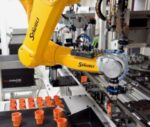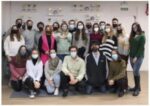Siemens extends mechanical performance with Simcenter 3D
Siemens’ Simcenter 3D software, part of Siemens’ Xcelerator portfolio of software and services, enables engineers to tackle the complexity of product development and innovation with advanced simulation. Among the new capabilities, Simcenter 3D offers increased support for turbomachinery modeling, a dedicated drop test application for handheld devices, tightly integrated topology optimisation with the NX Design environment, and a new acoustic solution method that is up to 10 times faster than standard methods. Simcenter 3D brings together combined expertise and experience across a wide range of industry sectors, capabilities and physics. Customers are finding bold new ways to make use of complex physics simulation to drive innovation across industries. Siemens’ Simcenter 3D 2022.1 release focuses on helping engineers overcome challenges in four key areas: Model the complexity: The ability to model and understand complex physical phenomena is at the forefront of this Simcenter 3D release. Simcenter 3D’s industry-leading solution for the turbomachinery industry has been extended with additional thermal multiphysics, rotordynamics and thermal fatigue capabilities to more accurately capture the complex physics happening within these machines. A new dedicated set of tools to simulate spiral bevel gears, as often found in automotive differentials, enables accurate, system-level NVH analysis on these mechanisms to reduce gear whine. Additionally, a new dedicated application simplifies and streamlines the drop-test simulation process for electronic and other handheld devices for engineers who are not simulation experts. Explore the possibilities: Acoustics auralisation capabilities allow engineers to not only simulate but also listen to the acoustics/sound within the context of the end-user’s experience. Engineers can now mix all contributing sounds and listen to the combined acoustics results to answer questions such as “What will a loudspeaker sound like when you put it in a car and combine it with background noise from the engine, HVAC, wind and road?” In […]










